Large-herd automated milking survey results - Progressive Dairy
Large-herd automated milking survey results - Progressive Dairy (To access the original article click here)
To understand the motivation and evaluate risk factors of implementing automated milking in large dairies, a survey was conducted by Dr. Daniela Bruno, Dr. Camila Lage and Dr. Fernanda Ferreira at the University of California, and Dr. Marcia Endres at the University of Minnesota.
Of the approximately 100 farms with seven or more robots in the U.S., researchers directly contacted 55 farms and received 29 responses (53%) from farms across 11 states. These farms had seven to 36 milking robots and ranged from 400 to 2,200 cows milked by the automated milking system. They've been using automated milking from nine months to 15 years, with the median average use at almost four years.
Results from the survey are shown below. In addition, the researchers shared this summary: "Overall, producers reported that automated milking systems have met their expectations about improving animal production and welfare and labor reduction; moreover, they would recommend the technology to other farmers but emphasized that success depend on farm aspects, farmer expectations/mindset and dealer proximity/relationship.
"However, the economic aspect of the investment is not yet clear and would benefit from further investigation. Several factors affect profitability when the farm implements [automated milking], including milk production per cow, labor costs versus savings and life span of the equipment. Adoption of this technology is certainly not an easy decision, and farmers should take their time to explore the options, talk to fellow farmers and have a good plan before making the investment."
Robot adoption
56% - More than half of the respondents have kept their conventional/rotary parlor
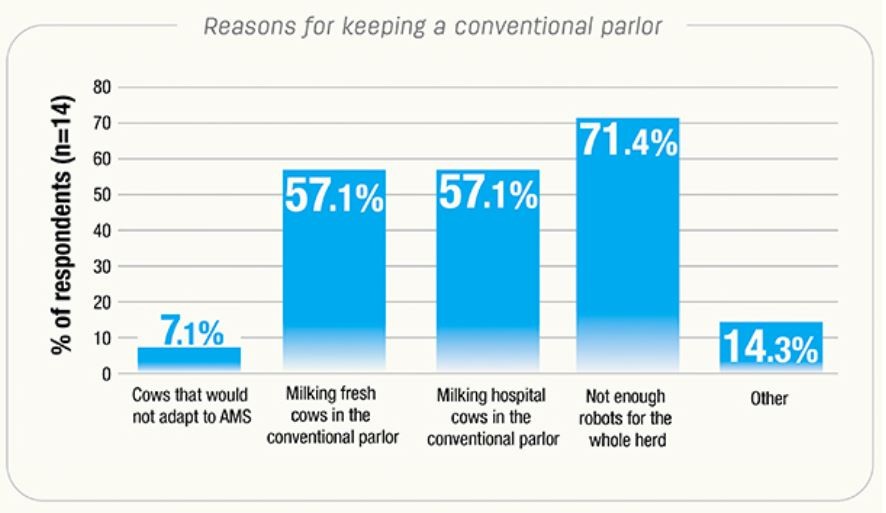
Labor 60.8% reported a reduction of 20% or more in the number of full-time employees after the transition.
34.7% were able to reduce the number of full-time employees by at least half.
The majority of the respondents stated existing employees had no problems adapting to the new technology, while there were still farms that had to hire new employees with different skills.
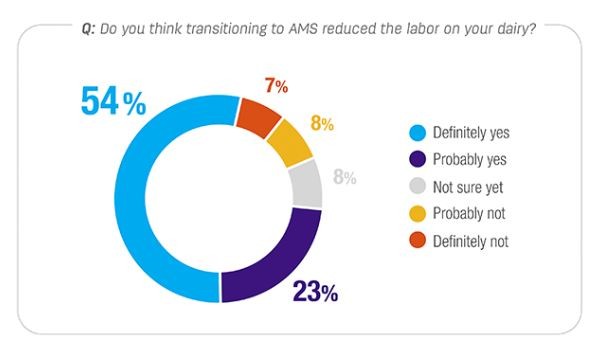
Cow comfort
65% reported cow comfort increased after transitioning to automated milking
Lameness
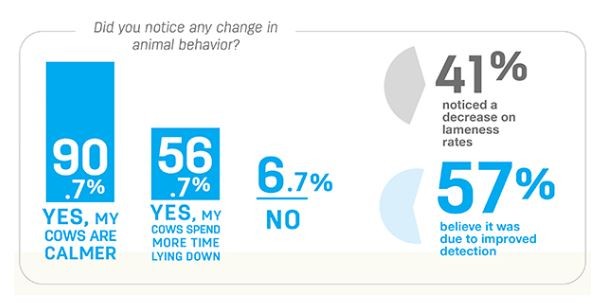
Milk quality and production
62% said mastitis management has improved
39% reported a reduction in clinical mastitis
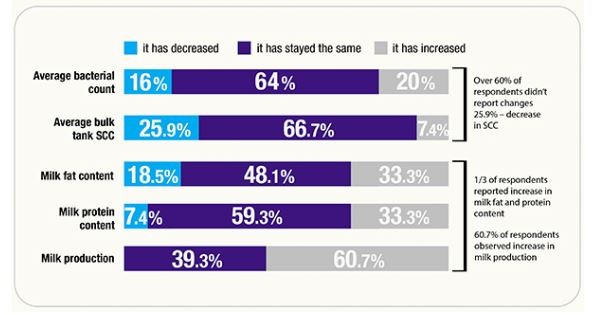
Farmers' perceptions of changes in their systems
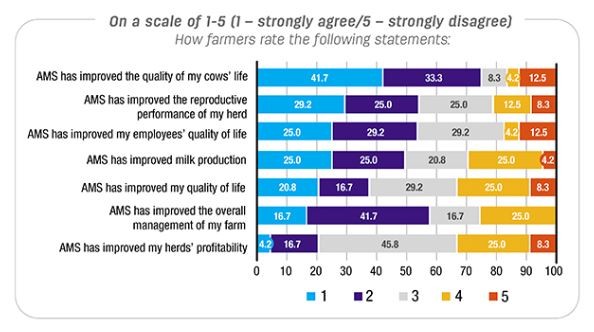
Upcoming Events
NYSDEC How to Get Certified Course
March 3, 2026 : NYSDEC How to Get Certified Course
Ellicottville, NY
NYSDEC training course in preparation to take the pesticide applicator exam.
From Data to Dollars: Making Data-driven Decisions to Increase Farmers Market Success
March 3, 2026
The Cornell Agricultural Marketing Research Program and Penn State University are excited to present this new, 6-week course as part of Cornell's Farmers Market Research Project. The course is for farmers with experience selling at farmers markets who wish to increase their earnings through management and marketing practices.
Cornell Organic Field Crops & Dairy Conference
March 6, 2026
Waterloo, NY
Farmers, researchers, educators, and agricultural service providers from across the Northeast are invited to the 2026 Cornell Organic Field Crops & Dairy Conference, held Friday, March 6, 2026, from 8:00 a.m. to 4:30 p.m. at the Lux Hotel & Conference Center in Waterloo, N.Y.
Co-hosted by New York Soil Health and Cornell CALS, the annual conference brings together leaders in organic grain, dairy, and livestock systems to share practical tools, new research, and farmer-tested strategies to support resilient and profitable organic production.
Announcements
Cows, Crops & Critters Newsletter Sponsorship
TRYING TO REACH GROWERS AND AGRIBUSINESSES IN OUR SOUTHWEST REGION OF NEW YORK?Weekly Email Update: Shared with 625+ households who have signed up with our program.
Monthly Paper Mailer: To reach our stakeholders and farmers who lack internet access, we send out a monthly mailer where your company's logo and contact information would be featured with a mailing list of 330+ households.
If you sponsor our weekly and monthly publications you reach approximately 955 households.





